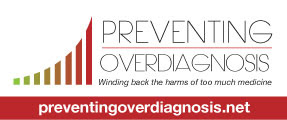The first instinct of a bureaucracy is self-preservation, and health care bureaucracies are no exception. This rule applies not only to government agencies, but to academic and industry settings as well. This was the conclusion I came to after listening to a panel of scientist and physician "whistleblowers" at last week's Selling Sickness 2013 conference in Washington, DC. One by one, they described their painful discoveries that widely prescribed medications such as the diabetes drug Avandia and the antibiotic Ketek were causing serious harm, and sometimes death, in thousands of patients. They talked about passing this knowledge on to supervisors and being ignored, rebuked, or ostracized. Protecting patients paled to the bureaucratic sin of rocking the boat.
For example, one academic researcher was fired by her institution, which seemed more interested in not jeopardizing the funding it received from a drug's manufacturer than evaluating evidence from her clinical trial that this drug was jeopardizing children's lives. A former Food and Drug Administration safety reviewer who determined that Avandia caused heart failure and heart attacks was verbally reprimanded and told to keep that conclusion to herself. (The FDA finally issued a safety alert more than a year later, after a study appeared in the New England Journal of Medicine supporting the reviewer's determination, but the agency did not restrict access to the drug until 4 years after her initial finding.)
I suppose that I consider myself a whisteblower, too, though what I did doesn't begin to compare with the courageous stories I heard last week. As readers of this blog know, I resigned from the Agency for Healthcare Research and Quality in November 2010 after senior health officials in the Obama Administration forced the cancellation of a U.S. Preventive Services Task Force meeting that was set to recommend against the use of prostate-specific antigen screening for prostate cancer because it led to more harm than good. The key vote was scheduled for the day of the midterm elections that the President's party would lose in a landslide, despite its desperate attempt to keep accusations of health care "rationing" off voters' minds. The cover-up included persuading Dr. Ned Calonge, the then-chairman of the USPSTF, to take personal responsibility for calling off the meeting, and circulating internal talking points that attributed the cancellation to logistical issues rather than Democratic Party politics. Nothing about this episode was illegal, but lying to the Task Force, its clinical partners, and press was definitely unethical. And from my perspective as a physician, withholding critical information from patients was immoral. Thousands more uninformed men received the PSA test before the USPSTF finally released its recommendation statement a year later. Many of them have already experienced anxiety, pain, and more permanent adverse effects of interventions such as prostate surgery that may not extend their lives by a single day.
The prolonged debate over who should pay for health care in U.S. has obscured the more important question of why the costs are much too high in the first place. One reason they're so high is because doctors like me order far too many tests and interventions that the scientific evidence shows are useless or potentially harmful, but also because health care institutions can get away with charging uninsured patients 20 or more times what these services actually cost. Time Magazine's Steven Brill recently did some whistleblowing of his own by exposing routine travesties such as a $21,000 emergency room heartburn bill and an $87,000 bill for outpatient surgery, inflated by charges such as $108 for a tube of Bacitracin or $1.50 for a single tablet of generic Tylenol. (Yes, a hot dog can cost $5 or more at ballgames and amusement parks, but you have a choice to go there and pay for those things. In health care, you may be too sick to shop around for the best deal on an appendectomy, or even if you know that you will experience a predictable health event such as having a baby, no one can tell you how much it will cost.) People may rail against the multi-million dollar compensation packages of investment banking CEOs, but executives at supposedly nonprofit hospitals are often paid on the same salary scale as professional sports stars.
To improve the health of all Americans, we need to stop political posturing over the pros and cons of "Obamacare" and instead empower more whistleblowers to pull back the curtains on the unscrupulous or corrupt practices of drug companies, government regulators, and venerable academic and health care institutions, who collectively constitute a "medical-industrial complex" that dwarfs the size of anything else in our economy. To quote my friend and family medicine colleague Pat Jonas (the blogosphere's Dr Synonymous), we need to keep pushing the Beast back. Common Sense Family Doctor is proud to be part of that effort.
skip to main |
skip to sidebar

Common sense thoughts on public health and conservative medicine from a family doctor in Lancaster, PA.
Search This Blog
Blog Archive
About Me

- kennylin
- I am a board-certified Family Physician and Public Health consultant practicing in Lancaster, PA. I am also Deputy Editor of the journal American Family Physician and teach residents and medical students at Lancaster General Health / Penn Medicine Family Medicine Residency program. I am paid to provide independent editorial and medical consulting services to the American Academy of Family Physicians, WebMD, and others. However, the content of this blog reflects my personal views only, and does not represent the views of any medical institution, publisher, or the AAFP.










